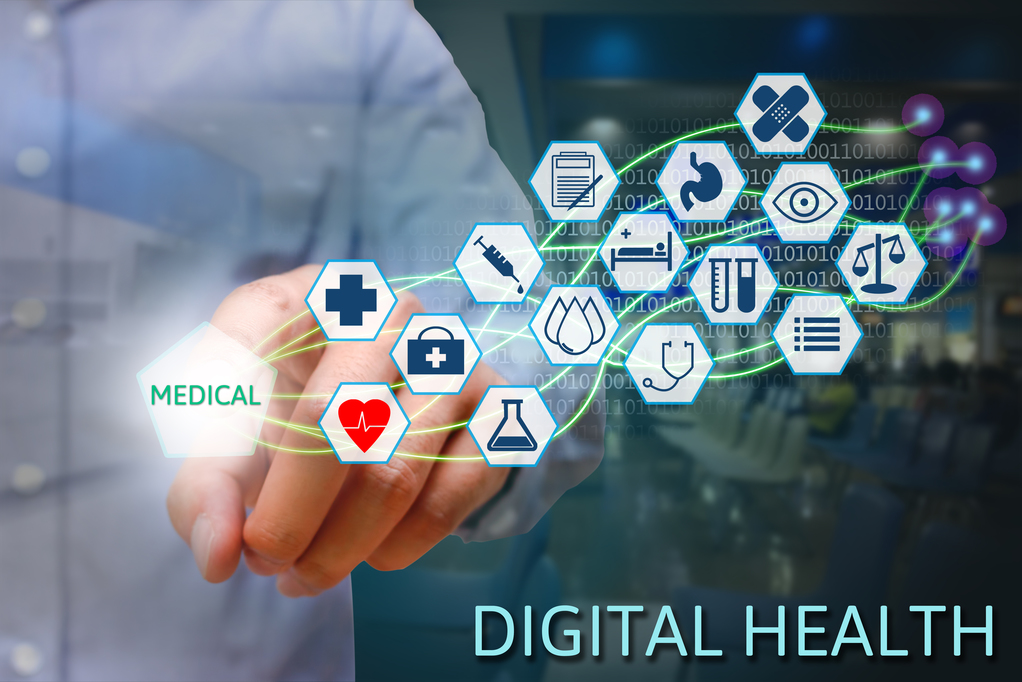Key takeaways:
- AI and Big Data are revolutionizing healthcare delivery. From improved accuracy in diagnosis through AI-driven tools to personalized treatment plans enabled by Big Data analytics, these technologies enhance patient care.
- Real-world applications, such as AI models for disease identification and prediction, personalized treatments, and operational efficiency through AI-driven robots, showcase the benefits of these technologies in healthcare.
- By actively participating in the HealthTech discourse, sharing insights, and contributing to the collective knowledge pool, SMEs can influence policy decisions, advocate for best practices, and shape the future of healthcare technology.
Over the past few years, the healthcare technology landscape has undergone a seismic shift, and industry leaders need to stay abreast of these changes. According to a recent report, the global market for healthcare artificial intelligence was projected to reach $38.6 billion by 2025, up from just $2.1 billion in 2018. This exponential growth underscores the rapid advancements we’re witnessing in HealthTech.
But why is this surge in technology adoption so crucial? As we examine this issue, you’ll discover how these innovations are not just enhancing patient care but are set to redefine the very fabric of healthcare delivery. Whether you’re a healthcare technology SME, a CEO, or a content marketing officer, understanding the trajectory of AI and Big Data and creating thought leadership in healthcare is pivotal.
The Rise of AI and Big Data in Healthcare
As you navigate the healthcare landscape, it’s impossible to overlook the monumental impact of Artificial Intelligence (AI) and Big Data. These aren’t just buzzwords; they represent a transformative shift in how healthcare is delivered and experienced.
Advancements in AI and Big Data Analytics
The last decade has seen AI evolve from rudimentary algorithms to sophisticated machine learning models capable of diagnosing diseases, predicting patient outcomes, and even assisting surgeons in real time. Big Data, on the other hand, has enabled the collection, analysis, and interpretation of vast amounts of health data, leading to more informed decisions and personalized care.
Read: 24 Examples of Big Data Analytics in Healthcare that Can Save People
Real-World Applications Transforming Healthcare
Consider the following examples that showcase the power of these technologies:
- Disease Identification and Prediction: AI models can now analyze medical images with a precision that rivals, and in some cases surpasses, human experts. For instance, Google’s DeepMind developed an AI that can spot eye diseases in scans, potentially saving the vision of millions.
- Personalized Treatment: With the help of Big Data, doctors can now tailor treatments based on a patient’s genetic makeup, lifestyle, and other factors. This personalized approach increases the efficacy of treatments and reduces potential side effects.
- Operational Efficiency: Hospitals and clinics use AI-driven robots for tasks ranging from disinfection to patient care, ensuring a safer and more efficient healthcare environment.
While the above examples are just the tip of the iceberg, they underscore the transformative potential of AI and Big Data in healthcare. As we continue to harness the power of these technologies, the future of patient care looks more promising than ever.
Enhancing Patient Care through AI and Big Data
In today’s healthcare landscape, the promise of AI and Big Data is more than just technological advancement; it’s about fundamentally enhancing patient care. Let’s delve deeper into how these technologies are making a tangible difference.
Transformative Effects on Patient Care
- Improved Accuracy in Diagnosis: Gone are the days of relying solely on manual interpretations. With AI-driven diagnostic tools, medical professionals can now identify diseases more accurately, ensuring timely and appropriate interventions.
- Personalized Treatment Plans: Big Data analytics allows for aggregating and analyzing vast amounts of patient data. This means treatments can be tailored to individual patient profiles, considering their genetic makeup, lifestyle, and other unique factors.
- Predictive Analytics for Proactive Care: Instead of merely reacting to health issues, healthcare providers can now anticipate them. Predictive models analyze patient data to identify potential health risks, enabling preventive measures.
Real-World Applications Making a Difference
- Telemedicine and In-Person Care Integration: Richard Tytus’s family clinic is a testament to the power of combining telemedicine technology with traditional in-person care, bringing manifold benefits to patient experience and outcomes.
- Automatic Patient Summaries: Orion Health’s integration of Pieces AI showcases the potential of AI in streamlining administrative tasks. With automatic patient summary generation, healthcare professionals can quickly grasp a patient’s medical history, leading to more informed decisions.
- AI-Driven Approaches to Health Challenges: Teams of clinicians, researchers, and educators collaborate to leverage artificial intelligence to address pressing healthcare challenges. By using real-world, de-identified patient data, they’re pioneering solutions that could redefine patient care.
As we continue to witness these innovations in action, it’s clear that the future of patient care is not just about technology, but about harnessing its potential to truly make a difference in people’s lives.
The Role of SMEs in Shaping the Future of HealthTech
In the rapidly evolving world of HealthTech, small and medium-sized enterprises (SMEs) play a pivotal role. Their agility, innovation, and unique perspectives drive many of the sector’s most ground-breaking advancements. Let’s explore the invaluable contributions of SMEs and why their voice is so crucial in shaping the future of healthcare technology.
The Unique Value Proposition of SMEs
Innovation at the Forefront: Unlike larger corporations that might be bogged down by bureaucratic processes, SMEs often operate at the cutting edge, quickly adapting to new technologies and methodologies. Their agility allows them to pilot, iterate, and implement solutions that can be game-changers in patient care.
Deep Domain Expertise: SMEs often specialize in niche areas, bringing deep domain knowledge and expertise. This specialization ensures that they can address specific challenges in the HealthTech sector with precision and efficacy.
SMEs and Thought Leadership
Establishing Industry Authority: By sharing their insights, research, and innovations with the broader community, SMEs can position themselves as experts by creating thought leadership in healthcare. This builds trust and cements their reputation as experts in their respective fields.
Influencing Policy and Best Practices: SMEs have the power to shape the narrative. Through thought leadership, they can influence policy decisions, advocate for best practices, and drive meaningful change in the healthcare ecosystem.
A Call to Action for SMEs
Now, more than ever, it’s imperative for SMEs to be active participants in the broader HealthTech discourse. By attending conferences, publishing research, or even engaging in online forums, SMEs can share their insights, collaborate with peers, and contribute to the collective knowledge pool.
While various stakeholders shape the future of HealthTech, the role of SMEs is undeniably central. Their expertise, innovations, and active participation are desirable and essential in steering healthcare technology toward a brighter, more efficient, and patient-centric future.
Leveraging Content Marketing in the HealthTech Landscape
In the digital age, content marketing has emerged as a powerful tool for businesses across industries, and the HealthTech sector is no exception. With the right content strategy, healthcare technology businesses can inform, educate, and build lasting relationships with their target audience.
The Power of Content Marketing for HealthTech Businesses
By producing quality content that showcases their expertise and knowledge, healthcare technology companies can establish themselves as trusted industry leaders, fostering trust and credibility. Utilizing formats such as blogs, videos, and webinars allows organizations to engage with a broad spectrum of audiences, ranging from healthcare professionals to potential investors and the wider public.
Beyond mere engagement, effective content marketing plays a pivotal role in driving business growth. It amplifies website traffic and catalyzes lead generation and conversions, bolstering brand visibility and standing out in a fiercely competitive market.
Practical Tips for Effective Content Marketing in HealthTech
- Know Your Audience: Tailor your content to address your target audience’s specific needs and interests. Whether it’s a blog post on the latest AI advancements or a whitepaper on data privacy, ensure it resonates with your readers.
- Leverage Multiple Content Formats: Don’t limit yourself to just articles. Explore videos, infographics, podcasts, and other formats to deliver your message effectively and engage with different audience segments.
- Stay Updated with Industry Trends: The HealthTech sector is ever-evolving. Regularly update your content to reflect the latest trends, research, and innovations.
- Engage and Interact: Encourage feedback, comments, and discussions on your content. Engaging with your audience builds a sense of community and fosters loyalty.
- Optimize for Search Engines: Ensure your content is SEO-friendly. Use relevant keywords, meta descriptions, and high-quality backlinks to improve visibility on search engines.
Content marketing is more than just publishing information; it’s about delivering value, building relationships, and establishing a strong brand presence in HealthTech. With the right strategy and execution, healthcare technology businesses can harness the power of content marketing to achieve remarkable results.
Harnessing AI and Big Data for Healthcare
As we’ve journeyed through the multifaceted landscape of healthcare technology, one theme remains clear: The future of HealthTech is a harmonious blend of AI advancements, the power of Big Data, the invaluable insights of SMEs, and the strategic prowess of content marketing. When combined, these elements can redefine patient care, making it more efficient, personalized, and proactive.
But understanding these trends is just the beginning. The real challenge—and opportunity—lies in harnessing them. To all the healthcare technology SMEs, CEOs, and content marketing officers reading this: The future is in your hands. Embrace these technological and strategic shifts. Collaborate, innovate, and lead the way. By doing so, you won’t just be adapting to the future, but shaping it.
Now is the time to take the helm, to be the trailblazers in a world where technology and healthcare converge. Let’s revolutionize patient care together.
For more information on how to build your reputation through thought leadership in healthcare, please contact me.

